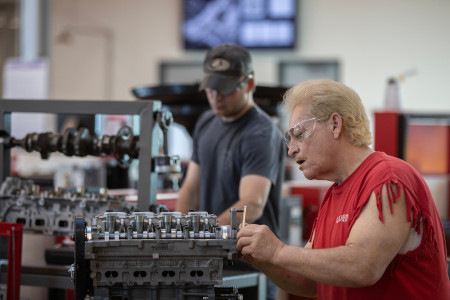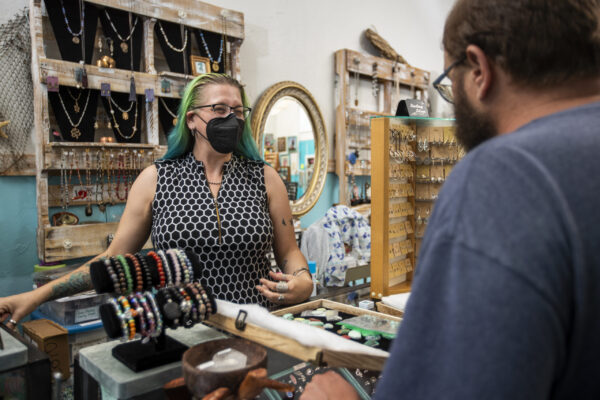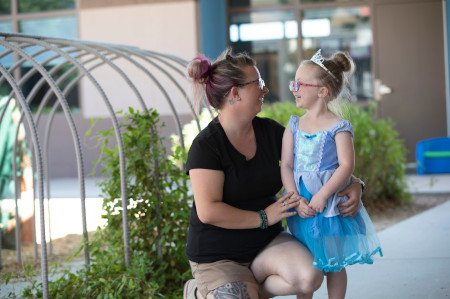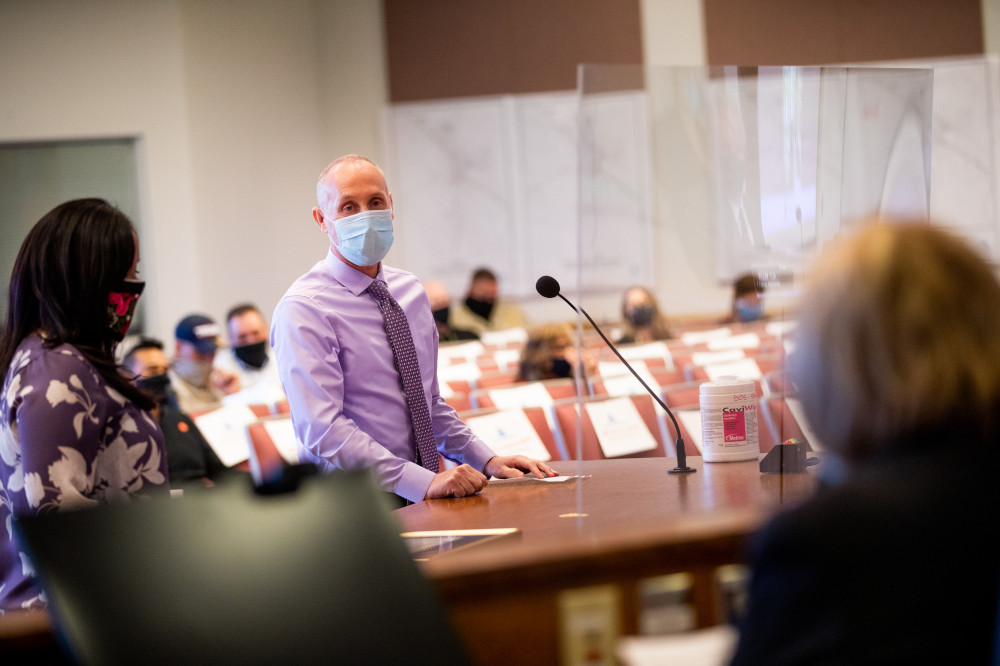David Salinas never saw himself in Information Technology. Even if he had, he probably wouldn’t have been able to afford the training necessary to enter the field.
That was until he joined Pima Community College’s Micro-pathways program, also known as PimaFastTrack.
The program quickly broadened Salinas’s career possibilities, and he already is looking for ways to advance in his new field.
“My plan once I complete the IT FastTrack program is to continue with the cybersecurity at Pima,” he said. “The FastTrack program has opened many outlooks for my future that I did not foresee a year ago.”
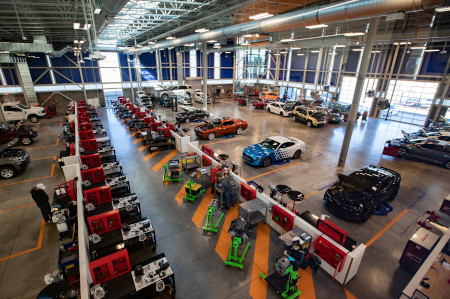
Jennifer Bryant, a program coordinator with Pima County’s Grants Management and Innovation Department, said Micro-pathways is the first of seven programs created after the County awarded Pima Community College money acquired through the American Rescue Plan Act of 2021.
According to Ian Roark, PCC’s Vice Chancellor of Workforce Development & Innovation, the program started in October 2021 after a year-long development period.
The Pima County Board of Supervisors granted $5.3 million to the Micro-pathways program on April 5, 2022.
The money from Pima County enabled PCC to hire program navigators and career coaches. Money allocated from Pima County also goes toward apprentice scholarships for students who need that experience.
Dan Sullivan, the Director of Pima County’s Community & Workforce Development Department, said Pima Community College is an “integral and innovative” part of the local workforce.
“We’re proud to contribute to the college’s Micro-pathways program, which provides meaningful opportunities and ways for residents to improve their economic outlook,” Sullivan said.
The program provides training opportunities and workforce education at little to no cost for Pima County residents who were affected by layoffs, furloughs, and other changes in the labor market during the COVID-19 pandemic.
The program typically lasts three months or less for students and focuses on helping them find careers in health care, automotive technology, plumbing, EMS (emergency medical services), HVAC (heating, ventilation, and air conditioning), cybersecurity, electrical work, and welding.
“These are fields that we know have opportunities for upward mobility,” Roark said. “Our target is for learners to earn family-sustaining wages.”
The courses are designed to meet the standards of those industries and are vetted by employers in the County.
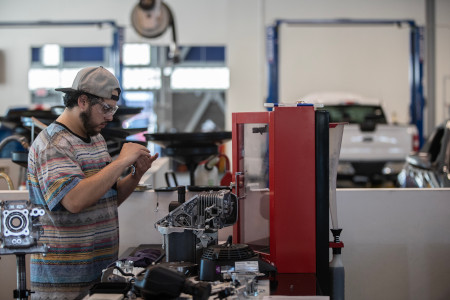
“We want courses that are short but very intensive,” Roark said. “We want these learners to be employed as fast as possible.”
There are 29 students in the program and most plan to work in health care. About 150 more have completed the program, according to Roark.
About 85% of students are unemployed or underemployed when they start the program.
“We really feel like we’re removing barriers,” Roark said.
He’s hoping the program grows to serve 400 to 500 people a year.
Money that went to Micro-pathways also provides students with scholarships, covers their exam fees and helps them find apprenticeships.
Initially, learners in the program don’t earn college credits. However, if they chose to return to PCC to earn an associate degree in that field, they can apply what they learned in the program toward covering those credits.
Learners in the program also can enlist the services of corporate and community navigators, who are there to guide them from enrollment to job placement.
Additionally, learners are co-enrolled in ARIZONA@WORK Pima County, another tool that helps connect job seekers with employers.
Learners must meet at least one of the following criteria and provide documented proof to qualify for Micro-pathways:
- Earn a low to moderate income
- Be displaced by the pandemic
- Be moving from a vulnerable sector, such as hospitality
- Be entering a Pima Community College health care or EMS program
Roark hopes to see PimaFastTrack grow as a training tool for local employers.
“We think FastTrack is the way of the future in education and training,” Roark said.

